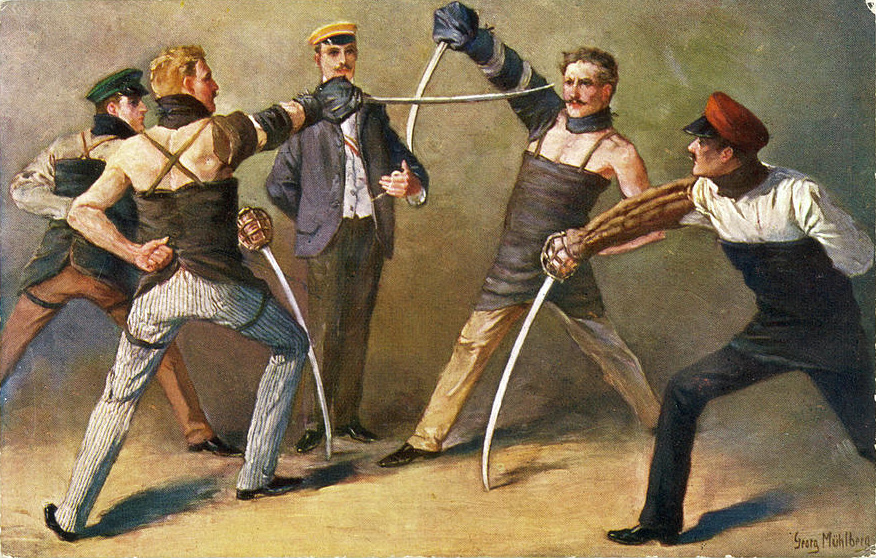 |
| Mühlberg, Georg. "German students of a Burschenschaft fighting a sabre duel" 01/29/2011 via Wikimedia. Public Domain License |
Three main groups speak out in this
debate over the genetic modification of embryos. The Chinese scientists who discovered the
process, the educated science scholars, and the general public. Junjiu Huang is the leader of the researchers
in China who are experimenting with the embryos. Many professors have the leading voice among
the scholars, such as George Daley, a stem-cell biologist from Harvard. Among the general public, it seems to be
those with religious beliefs that are opposed to the issue and therefor speak
out.
While the general public may spark
some scientists to reconsider their views, it is truly the scientific community
that holds the power to decide if the genetic modification of embryos
continues. The Chinese scientists who
discovered the process also hold power as they are the ones who control the
knowledge and could potentially proceed with their own plan despite others’
views.
The people involved in opposing the
issue are more limited to using an emotional appeal, although some arguments
can be made using the scientific research of the harmful effects. On the other hand, the Chinese scientists are
limited to using their factual evidence to show the benefits of their
discoveries.
Much of the general population
values this idea of not playing God.
Secondly, those with knowledge in the field understand and value the
avoiding the consequences (many unforeseen) that could occur with the
modifications. The Chinese scientists
and those who approve the research value the benefits it could make to human
health and beyond. They may also value
the profit that the research makes.
While pathos plays a large role in
the voice of the general public, the main evidence that will actually lead to
change will be the scientific proof.
This applies to the Chinese scientists as well. The scientifically proven pros must outweigh the
scientifically proven cons, or vice versa.
The power truly lies in the hands
of the Chinese scientists since they hold the knowledge and the research. They could continue operations without any
consent until a group was able to shut them down based on real dangers. It is harder to stop progress than to keep it
going.
Both sides of the argument acknowledge
many of the scientific advantages and disadvantages and agree with them. However, the decision (if their truly is one)
will come by deciding if the benefits outweigh the dangers and risks. There is little other common ground as the
two groups have different ethical beliefs.
The general public most likely only
talks to those who agree the genetic modification is unacceptable. Whether they want to or not, the scientific
community is forced to respond to the claims of research made by the opposing
parties.
No comments:
Post a Comment